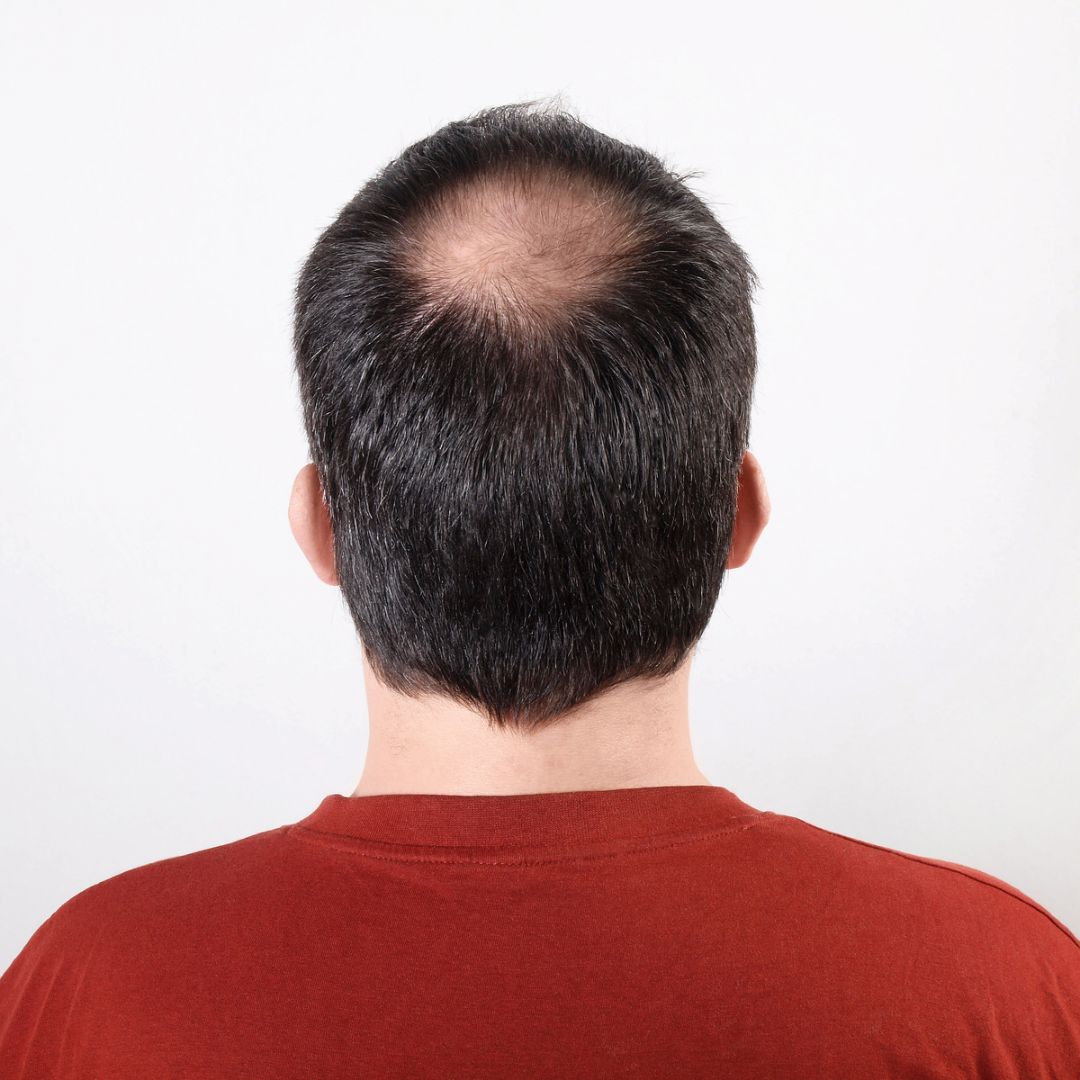Hair Restoration
Hair Restoration
For many women, their hair is their crowning glory, and what man doesn’t want a head full of hair to make him look younger and full of vitality? Hair loss can be progressive and multifactorial. There are many processes that take place during hair growth/ hair loss, therefore early diagnosis and treatment using a combination of therapies to correct the various processes make for the best results. We offer several hair restoration treatments in Roswell, Georgia.
Integrity Hair Restoration Treatment (Microneedling +PRP with Biotin+Amniotic Fluid)
We are proud to offer the Integrity Hair Treatment program designed as an all-in-one solution for hair restoration treatment for both men and women. The program combines an array of components to help battle hair loss including amniotic fluid, PRP with biotin, microneedling and aftercare hair solution. The amniotic fluids natural proteins, nutrients and other growth factors work with your PRP to stimulate hair follicles helping the growth of new healthy hair. During a session, your scalp will be cleansed, and you will be given a topical anesthetic to help minimize any discomfort. A small amount of blood is taken from a vein and placed inside of a device that separates the red blood cells from the plasma. The PRP plus biotin and amniotic fluid solution is then added into a syringe, which is then injected and micro needled into the scalp to stimulate hair regrowth. These substances are thought to help with hair growth. Consultation is required to determine if you are a likely candidate for this treatment. Number of treatments vary based on patient’s status, but 2-3 treatments every 3-6 months is the standard recommendation with maintenance treatment every 6-12 months.
Hair Restoration Treatment (Microneedling+PRP)
Employs a combination of microneedling and the infusion of Platelet Rich Plasma (PRP). During a standard hair restoration session, your scalp will be cleansed, and you will be given a topical anesthetic to help minimize any discomfort. A small amount of blood is taken from a vein and placed inside of a device that separates the red blood cells from the plasma. The plasma, rich with platelets and growth factors, is then added into a syringe, which is then injected and micro needled into the scalp to stimulate hair regrowth. These substances are thought to help stimulate hair growth. PRP hair injections are reported to be very tolerable with the help of the topical anesthetic. Keep in mind that everyone has a different experience with this type of treatment. Consultation is required to determine if you are a likely candidate for this treatment. Number of treatments vary based on patient’s status, but 3-4 treatments every 4-6 weeks is the standard recommendation with maintenance treatment every 6-12 months
Am I a good caandidate for PRP hair restoration?
1. What stage of hair loss are you in?
PRP treatment works best when you catch hair loss early. If most of your hair is already gone or you have been bald for a while, PRP will not be able to fully restore the hair in that area. That is why it’s so important to come talk to us right away as soon as you notice your hair beginning to thin.
2. What’s the skin in the area like?
For most people, the skin on our scalp remains largely protected from the sun by our hair. But if your hair has been thinning a while or there is some other issue at play, the skin might not be in good enough shape for the PRP to work. If you have experienced frequent sunburns in the area, for example, you can expect some improvement but won’t see a full return to your natural head of hair.
3. What’s your general health like?
PRP come from your own blood. This is good news in that it means there are no drugs, foreign materials, or chemicals needed, so you don’t have to worry about rejection or allergic reactions. However, it also means you need to be in good general health. If, for example, you’re suffering from anemia, we won’t be able to take your blood to extract the PRP. PRP is also not a good treatment for anyone with cancer. If your overall health, however, is generally fine, this could be the perfect treatment for you.
4. Do you have any malignancy infections?
Any malignancy can potentially be transferred by your blood from one area to another. Malignancy causes uncontrolled cell division, leading to tumor growth. If you’re suffering from a malignancy infection, such as blood cancer, or any infection of the blood, it’s best not to get PRP treatment.
5. Are you a smoker?
Smoking harms your health in almost every conceivable way. One of the many health issues it causes is reduced platelet count. Since platelets are the first P in PRP, they are crucial to successful PRP for hair restoration. In smokers, it is not uncommon to require three times the amount of blood to get the same number of platelets, which simply may not be possible. If you smoke, let your thinning hair be your motivation to finally give it up. Once you have stopped smoking for long enough, PRP can be an option for restoring your hair.
6. Are you a heavy drinker?
Moderate drinking does not mean you can’t undergo PRP therapy, but if you drink heavily on a regular basis, you’ll need to cut back so your body can make enough stem cells for the PRP to restore your hair. As with smoking, consider your thinning hair a motivation to drink more moderately.
7. Are your hair follicles still working?
PRP therapy works best for people with hair follicles that still work but are simply lying dormant. Follicles can die off due to old age or poor nutrition, among other issues, so it’s important to seek treatment from medical professionals who can help you understand the reasons behind your hair loss and the best treatment for it.
8. Are you pregnant?
Out of an abundance of caution, it is usually best to wait until after pregnancy for many cosmetic treatments, PRP included. While PRP is not a harmful substance that could hurt a fetus, pregnant mothers can have blood pressure too low to allow for a safe blood draw, among other concerns.


